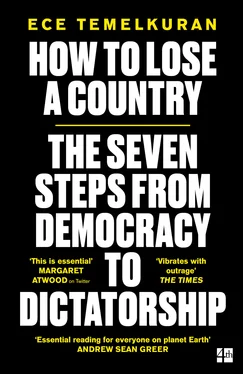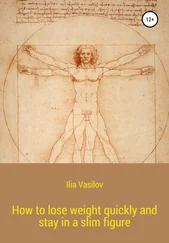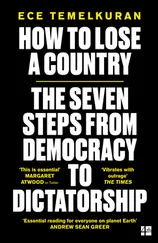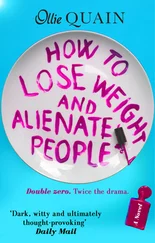‘Turks must be watching us and laughing their asses off tonight,’ read an American tweet on the night of Donald Trump’s election victory less than five months after the failed coup attempt. We weren’t. Well, maybe one or two smirks might have appeared. Behind those smirks, though, lay exasperation at having to watch the same soul-destroying movie all over again, and this time on the giant screen of US politics. We wore the same pained expression after Britain’s Brexit referendum, during the Dutch and German elections, and whenever a right-wing populist leader popped up somewhere in Europe sporting the movement’s signature sardonic, bumptious grin.
On the night of the US presidential election, on the day of the Brexit referendum result, or when some local populist fired up a surprisingly large crowd with a speech that sounded like total nonsense, many asked the same question in their different languages: ‘Is this my country? Are these my people?’ People in Turkey, after asking these questions for almost two decades and witnessing the gradual political and moral collapse of their homeland, regressed to another dangerous doubt: ‘Are human beings evil by nature?’ That question represents the final defeat of the human mind, and it takes a long and excruciating time to understand that it’s actually the wrong question. The aim of this book is to convince its readers to spare themselves the time and the torture by fast-forwarding the horror movie they have recently found themselves in, and showing them how to spot the recurring patterns of populism, so that maybe they can be better prepared for it than we were in Turkey.
It doesn’t matter if Trump or Erdoğan is brought down tomorrow, or if Nigel Farage had never become a leader of public opinion. The millions of people fired up by their message will still be there, and will still be ready to act upon the orders of a similar figure. And unfortunately, as we experienced in Turkey in a very destructive way, even if you are determined to stay away from the world of politics, the minions will find you, even in your own personal space, armed with their own set of values and ready to hunt down anybody who doesn’t resemble themselves. It is better to acknowledge – and sooner rather than later – that this is not merely something imposed on societies by their often absurd leaders, or limited to digital covert operations by the Kremlin; it also arises from the grassroots. The malady of our times won’t be restricted to the corridors of power in Washington or Westminster. The horrifying ethics that have risen to the upper echelons of politics will trickle down and multiply, come to your town and even penetrate your gated community. It’s a new zeitgeist in the making. This is a historic trend, and it is turning the banality of evil into the evil of banality. For though it appears in a different guise in every country, it is time to recognise that what is occurring affects us all.
‘So, what can we do for you?’
The woman in the audience brings her hands together compassionately as she asks me the question; her raised eyebrows are fixed in a delicate balance between pity and genuine concern. It is September 2016, only two months after the failed coup attempt, and I am at a London event for my book Turkey: The Insane and the Melancholy . Under the spotlight on the stage I pause for a second to unpack the invisible baggage of the question: the fact that she is seeing me as a needy victim; her confidence in her own country’s immunity from the political malaise that ruined mine; but most of all, even after the Brexit vote, her unshaken assumption that Britain is still in a position to help anyone. Her inability to acknowledge that we are all drowning in the same political insanity provokes me. I finally manage to calibrate this combination of thoughts into a not-so-intimidating response: ‘Well, now I feel like a baby panda waiting to be adopted via a website.’
This is a moment in time when many still believe that Donald Trump cannot be elected, some genuinely hope that the Brexit referendum won’t actually mean Britain leaving the European Union, and the majority of Europeans assume that the new leaders of hate are only a passing infatuation. So my bitter joke provokes not even a smile in the audience.
I have already crossed the Rubicon, so why not dig deeper? ‘Believe it or not, whatever happened to Turkey is coming towards you. This political insanity is a global phenomenon. So actually, what can I do for you?’
What I decided I could do was to draw together the political and social similarities in different countries to trace a common pattern of rising right-wing populism. In order to do this I have used stories, which I believe are not only the most powerful transmitters of human experience, but also natural penicillin for diseases of the human soul. I identified seven steps the populist leader takes to transform himself from a ridiculous figure to a seriously terrifying autocrat, while corrupting his country’s entire society to its bones. These steps are easy to follow for would-be dictators, and therefore equally easy to miss for those who would oppose them, unless we learn to read the warning signs. We cannot afford to lose time focusing on conditions unique to each of our countries; we need to recognise these steps when they are taken, define a common pattern, and find a way to break it – together. In order to do this, we’ll need to combine the experience of those countries that have already been subjected to this insanity with that of Western countries whose stamina has not yet been exhausted. Collaboration is urgently required, and this necessitates a global conversation. This book humbly aims to initiate one.
ONE
‘We have to take the deer! We have to!’
So says four-year-old Leylosh, shouting to emphasise the fact that we simply must put the imaginary deer on the infinitely large back seat of our imaginary car, which is already filled by several other animals, including a dinosaur we luckily managed to rescue from freezing. We are driving from Lewisburg, a once-thriving small farming town, sixty miles north of Harrisburg, Pennsylvania, to her granny’s house in Istanbul, to deliver the Lego duck that we built and then cooked on a miniature stove. Leylosh is squinting in the imaginary wind and providing a scary winter soundtrack for our arduous journey: ‘Oouuuuvvoouuuv!’ Now and then she checks with a quick side glance to make sure I’m fully engaged. Satisfied with my powers of imagination, she turns back to reassure our passengers: ‘Don’t be afraid. We’ll be at Granny’s soon. We don’t have to go to school today.’
In a less exciting parallel universe, she will have to go to kindergarten in fifteen minutes, and in an hour’s time I’ll have to give a lecture at Bucknell University, a liberal arts college, on ‘rising populism’ and my novel The Time of Mute Swans , which partly deals with how Turkey became the perfect case study for the topic. Leylosh’s mother Sezi, a long-time friend who teaches at Bucknell, talked me into this, because she believes that American academia needs to hear about the Turkish experience and to be warned about the later stages of the Trump administration. It is therefore now time to stop teaching Leylosh how to ‘kiss like a fish’ and return to my real-life role: floating like the angel with a bugle in Bruegel’s The Fall of the Rebel Angels to alarm the wool-gathering masses. Sezi keeps checking her watch. But neither Leylosh nor I are keen to get out of the imaginary car, and in a way, her reasons are no less political than mine.
Sezi is a fortepianist and an expert on eighteenth- and nineteenth-century musical instruments. Leylosh probably thinks all mothers play Chopin on antique pianos to persuade their daughters to eat their breakfast. It’s doubtless no more unusual to her that her father is an anthropologist who periodically visits indigenous tribes in the Amazon rainforest. Her school, a kindergarten for children whose parents work at the university, a safe haven for children of cosmopolitan academics in a small American town, is full of kids like her; they speak at least two languages, travel regularly between continents, and are blissfully unaware that what’s normal to them is far from ordinary.
Читать дальше












